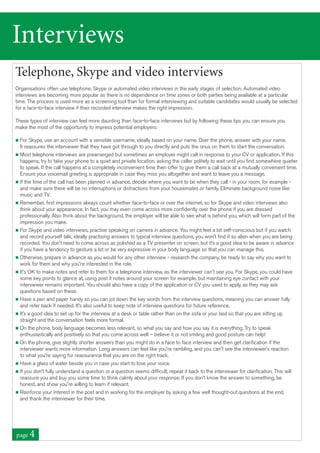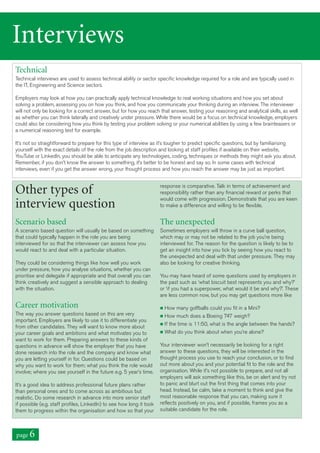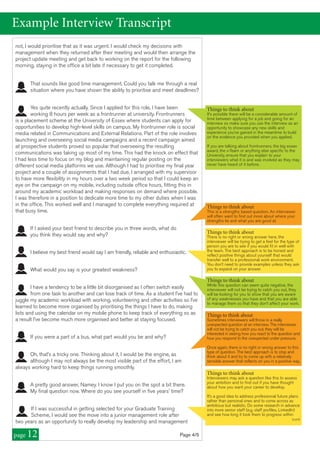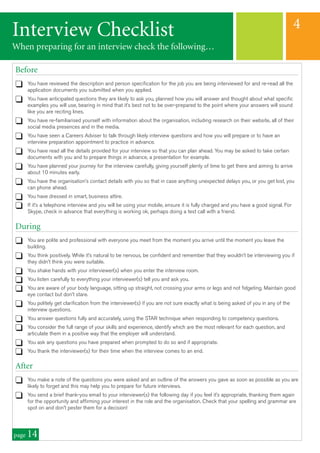This document provides a summary of the Essex Interview pack, which was created by the University of Essex to help students prepare for interviews. It discusses different types of interviews, such as telephone, video, face-to-face, competency-based, strengths-based, technical and scenario-based interviews. It provides tips on how to prepare for each type, including researching the company, practicing answers using the STAR technique, and being ready to answer common questions. Sample interview questions are given as examples. The pack aims to help students recognize their skills, discuss them effectively, and feel confident during the interview process.















